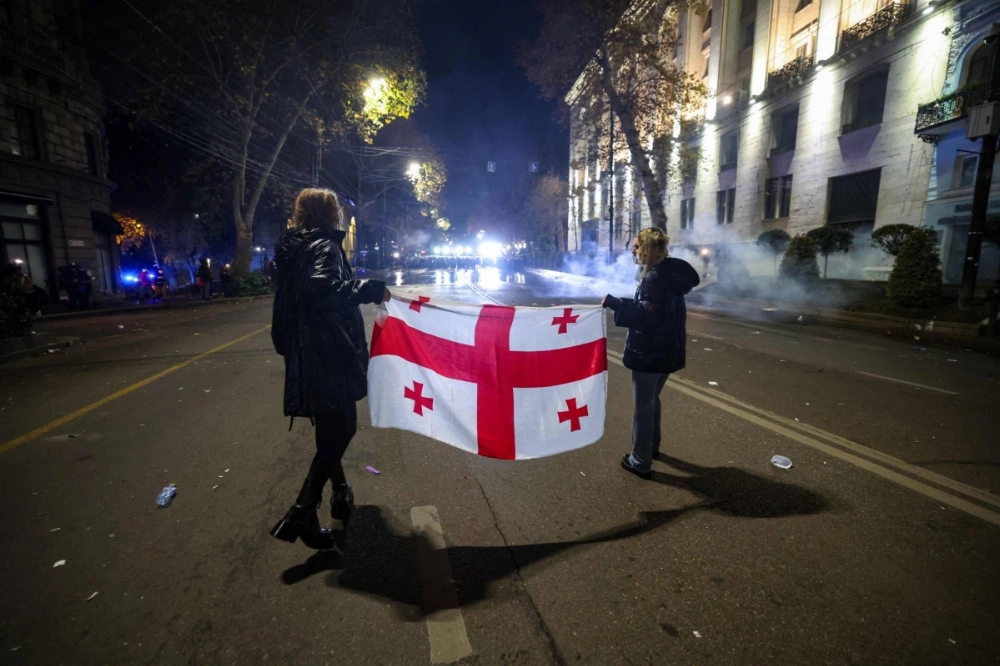What are we seeing in Georgia? That isn’t an easy question to answer, but I think it’s the moment at which the government of a functioning democracy crosses the line to illegitimacy and autocracy.
That transition can be hard to spot in real time. Governing young states tends to get messy and even authoritarian regimes claim democratic legitimacy, including the one President Vladimir Putin has developed in Russia and President Xi Jinping’s in China. Yet at some point, those claims became transparently meaningless. That’s happening in Georgia.
It's easy enough to see when an unpopular leader, such as South Korean President Yoon Suk Yeol, declares martial law for no genuine reason. His Dec. 3 attempt at what amounted to a constitutional coup failed and impeachment awaits him. Yet if that’s the political equivalent of an open declaration of war, Georgia’s evolution is more akin to hybrid warfare, where the subversion of institutions and rights is more surreptitious and is conducted in their name.

















With your current subscription plan you can comment on stories. However, before writing your first comment, please create a display name in the Profile section of your subscriber account page.